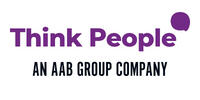From rising energy costs and food shopping to our Disney + subscriptions, we are experiencing price increases at every step. Fuel costs are making headlines daily, with experts predicting that prices will reach £2.00 per litre soon with no sign of a reduction.
Retaining Employees In An Employees Market
On the wages front, the National Living Wage (NLW) is set to increase to £9.50 per hour for those aged 23 and up in April 2022, but since inflation is currently high, NLW increases may not keep up with the upward trend of inflation. Employers are at the mercy of the labour market, currently referred to as an “Employees Market”. Many employers are experiencing the impact of “The Great Resignation,” which allows employees to seek out and command the most attractive wage and benefits package available. Key employee retention is more critical than ever before, and it is likely to be a top HR priority for organisations. There is now increasing pressure on companies to review job roles and their existing salary structures. This is to ensure that they are fair, competitive, efficient, and commercially viable for the company.
Importance Of Regular Job Evaluations
Job evaluation is defined as the systematic processing of assessing the value of each job compared to other jobs in an organisation. This process provides companies with a hierarchy of each role by rank order of importance and complexity within the company. Factors used to assess a job’s worth are identified, defined, and weighted in the company’s job evaluation plan. The key steps involved in job evaluation are; job analysis, job documentation, job rating using the company’s job evaluation plan, and the creation of the hierarchy.
Conducting job evaluations and benchmarking exercises demonstrates transparency around pay decisions. It allows the company to understand the roles within the company, identify the most valuable roles and highlight any that may be overpaid or irrelevant resulting in a negative impact on the salary structure. An effective job evaluation project can lead to clear pathways for both the employer and employee. Job evaluation supports retention through the feeling of being valued and fairly paid for the work that you do, through the added benefit of the employee’s input into the process. Furthermore, it is beneficial to carry out salary benchmarking in parallel with a job evaluation process to gain insight into the rates for similar roles with other organisations. This enables a company to establish where the company sits in the marketplace which is a valuable attraction and retention tool.
Does Your Organisation Need A Job Evaluation?
Job evaluation and market pricing are useful interventions where there are doubts over the value and relevance of some roles in the company, increased resignations citing salary as a reason leaving, or where salary structures have the potential to be eroded by NLW increases. Clear and concise salary structuring can also help to counter equal pay claims. It is important to review and repeat job evaluation and market pricing surveys at different stages of the company lifespan.
Think People have a wealth of experience in using various Job Evaluation and Pay Benchmarking systems. We have conducted reward reviews in the public and private sectors across industries. You can rely on our team to help you choose the right approach for your context and organisation. We will ensure a legally compliant, systematic process is carried out by our highly experienced consultants to produce robust results.
We will also help you implement the findings and support management to effectively communicate, and engage employees throughout the process. Have a talk with one of our consultants about carrying out a job evaluation and salary bench marking in your organisation today by sending an email to enquiries@thinkpeople.co.uk

